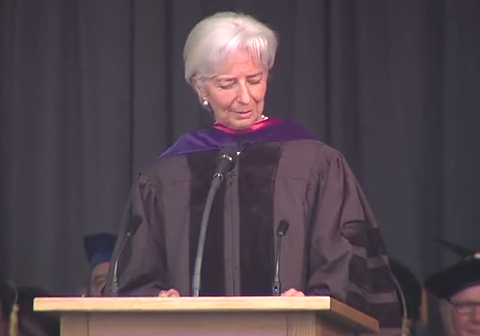But let me add a word of caution:
但我要提醒大家一句:
taking risks and reinventing yourself also means leaving room for the unexpected, for the perfectly unplanned.
承擔風險并重塑自己,也意味著要為預料之外的、完全計劃外的事情留有后路。
And that is particularly true in business and technology.
在商業和技術領域尤其如此。
I'm going to ask you three questions.
我問你們三個問題。
Did you know that the world's biggest hotel company does not own any hotels?
你們知道世界上最大的酒店公司,其實沒有任何酒店嗎?
Did you know that the world's biggest taxi company does not own any cabs?
你們知道世界上最大的出租車公司,其實沒有任何出租車嗎?
And the world's biggest news agency does not own any newspapers.
還有世界上最大的新聞機構,其實沒有任何報紙。
Now of course, you know who they are.
你們肯定知道這三家公司是誰。
Who I'm talking about? Of course, Airbnb, Uber, Facebook.
我說的是誰?顯然,是愛彼迎,優步,臉書。

Now these companies did not exist a few years ago, and it would have been unthinkable to even ask a question like that.
僅在幾年前,這些公司還不存在,甚至提出這樣的問題也是不可想象的。
But ever since a little company called Amazon.com,
但是自從一家名為Amazon.com的小公司,
started selling books online, sharing information freely, we have come to expect the unexpected.
開始在線銷售書籍、免費分享信息以來,我們就開始期待出人意料的事情。
Disruption -- through technology and market forces -- is the only known variable.
技術和市場力量的干擾,是唯一已知的變量。
And there is only so much in life that you can plan and foretell.
生活中你可以計劃和預測的只有那么多。
I am not suggesting here that you should lean back and relax. Quite the opposite, actually.
我不建議高枕無憂地放松。恰恰相反。
It was Thomas Jefferson who once said: "I am a great believer in luck and I find the harder I work, the more I have of it".
托馬斯·杰斐遜曾經說過:“我是運氣的忠實信徒,我發現我越努力,就越走運。”











